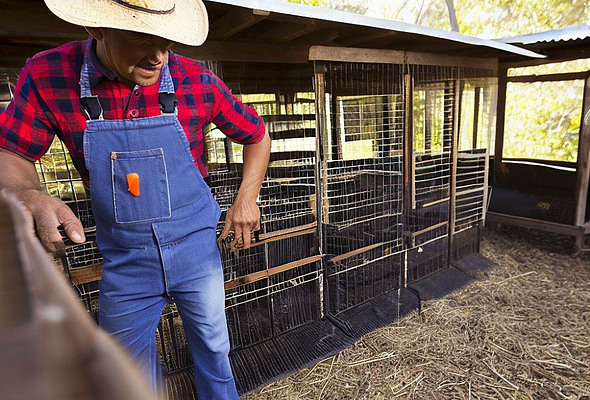Starting with the right number of chickens is helpful when you are new to chicken keeping. Many want to start with ambitious plans but would be wise to ask themselves, “How many chickens should I start with?” This guide will help unravel this conundrum by discussing factors that influence the ideal number, the benefits of starting small, and adjusting your flock over time.
Factors to Consider Before Deciding
Deciding to raise chickens is really no different from deciding on any other pet like a cat, a dog, or fish. There are ramifications with either choice. Before you march into the world of chicken-keeping, consider these essential factors:
Always keep in mind that virtually every predator on the planet wants to eat your chickens.
Purpose of Raising Chickens
Eggs:
A regular egg supply usually requires 3-6 hens. Unless you plan on feeding several people every day, even this seemingly small number of chickens will have eggs piling up faster than you anticipate.
Each chicken should ideally have 2-4 square feet of coop space for optimum egg production.
Meat:
Raising chickens for meat? Keep in mind the space they’d need to grow and the time to reach maturity. Broilers, for instance, mature by 6-7 weeks.
Pets or Show Birds:
Different breeds offer unique personalities. Bantams, for example, can be delightful show birds and companions.
Available Space
Every chicken loves a good strut. For free-ranging outside of the coop in the yard, 8-10 square feet per bird is ideal. Consider how many chickens it can comfortably accommodate if you’re an urban dweller with a petite backyard.
Location is also an issue. If the neighbors live nearby, you will want to keep your chickens on your property, and you probably don’t want a rooster.
Budget & Resources
Start-up costs for coops, feeders, and essentials can vary. Factor in monthly expenses for feed, occasional vet bills, and surprise costs. If you plan to sell eggs or meat, consider potential earnings too.
Time Commitment
Chickens are social creatures. While small flocks demand less time, a larger brood requires more hands-on care. Automatic feeders can be a lifesaver for big flocks.
The Golden Number: Recommendations for Beginners
The smaller you can convince yourself to start, the happier you might be. I’m certain you will fall in love with raising chickens, but who knows, you might give it up immediately.
It’s easier to give away a few birds than it is a large flock.
Benefits of Starting Small
Taking baby steps in poultry has its merits. It allows easier management, offers room for learning, and helps form bonds with each bird.
Feed costs are lower than if you had a large flock. Experiments with raising methods are done on a smaller scale, so if you mess up, you mess up small.
Potential Pitfalls of Large Initial Flocks
An overcrowded coop isn’t just a logistical nightmare. It can lead to health issues, making it challenging to track individual birds and increasing susceptibility to diseases.
Special Considerations
Dealing with Roosters
Roosters can be excellent watchdogs for the flock, but they might not be everyone’s cup of tea or legal in every area. Also, their feisty nature needs a watchful eye.
Broody Hens and Expansion
Every so often, a hen gets the maternal itch. Should you let her hatch her eggs? This choice leads to the eventual consideration of flock expansion.
Adjusting Your Flock Over Time
Introducing New Chickens
Bringing in new birds? Quarantine is a must and will save much potential agita. Introduce them gradually to ensure harmony in the coop.
New chickens from another farm can lead to the spread of diseases.
Introducing baby chicks to strange larger birds too soon can be hazardous to the chicks.
Managing Aging Chickens
As hens age, their productivity wanes. Be ready for health issues that come with senior birds and decisions about their future care.
Your journey with chickens is uniquely yours. Flexibility and continuous learning are key. For further insights, BackYard Chickens offers a vibrant community of poultry lovers just like you.
Thanks for reading. I appreciate any comments you might have.
Dave
Chickenmethod.com


